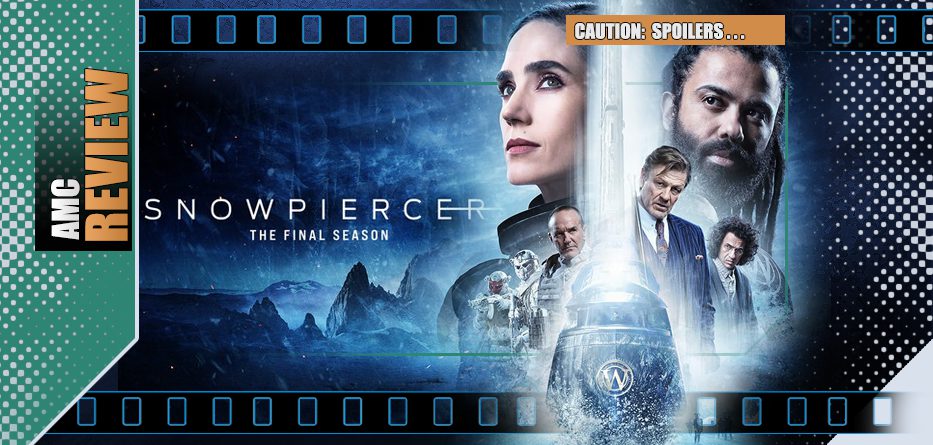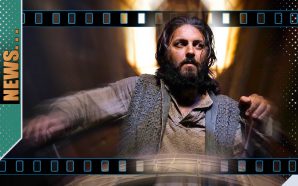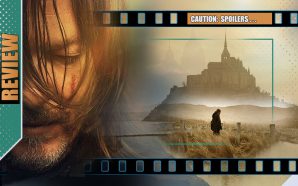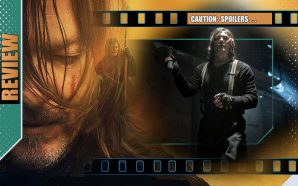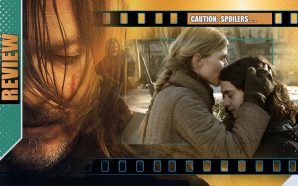The original Snowpiercer – an adaptation of the 1982 Transperceneige graphic novel by Jacques Lob, Benjamin Legrand and Jean-Marc Rochette – was a subversive but vivid mix of eclectic story-telling from the pen and director’s chair of Bong Joon-ho (a breakthrough followed by the likes of Parasite, Okja and Mother) a revolutionary fable and star-power with the likes of John Hurt, Chris Evans and Tilda Swinton providing the key characters aboard a train that traversed a climate-changed, freezing world with the remnants of humanity battling to survive the elements and each other aboard a train that was physically and emotionally divided by class. It was supported by great performances, intriguing ideas and visuals and imaginative backdrops and proved a cult success.
It was not, perhaps, the most obvious film to adapt into a television series and the early days of the series (which took over three years to bring to the screen and traverse its initial production) had a turbulent start with a change in writers, show-runner and networks and a challenge to find how much of the film’s more askew and surreal aspects would filter into the more episodic show with a less stellar (if still impressive) budget. it had received a pilot order in 2016, but it was 2018 before a series was green-lit. Scott Derrickson was hired to direct the pilot written by Josh Friedman, the latter also serving as showrunner. However, Friedman was subsequently removed from the project by TNT due to ‘creative differences‘. Most of the pilot was reshot, but Derrickson refused to return for the reshoots, stating on twitter: “The 72-page Snowpiercer TV pilot script by [Josh Friedman] is the best I’ve ever read. The feature-length pilot I made from that script may be my best work. The new showrunner has a radically different vision for the show. I am forgoing my option to direct the extreme reshoots.” Co-executive producer James Hawes handled the reshoots.
The artistic flourishes of the show were subsequently toned down a little to more practical aspects, while still keeping the central idea of a fragile self-contained ecosystem and class-system aboard a claustrophobic but constantly moving train. Veteran Set-Designer Stephan Geaghan excelled at creating various carriages around similar blueprints but realized in different ways.
If there had been problems with the start of the journey, there was also to be drama as it ended. The behind-the-scenes drama continued for the final season. Paul Zbyszewski would take over as the showrunner for the fourth season but after it was finished, Warner Bros. notoriously shelved the intended broadcast on TNT – all for the benefits of an apparently pragmatic, if creatively-crippling tax break. This led to a lot of frustration from both the creative production personnel and the viewers who had been told the fourth season would be the final one but now had no idea when it would be seen. (To be clear, it wasn’t known if the series would be broadcast at all. Warners‘ decision to shelve the Batgirl film, even when it too had been completed has meant that project will likely never be seen). Ultimately, there were two years between the screening of Season Three and the start of Season Four with AMC finally picking up the final season).
If this fourth season isn’t quite its best then it’s still ambitious, well-produced television, combining great drama, great design and strong VFX as needed. There’s been a surge in quality tv, particularly on streaming services, so fans of the show will likely find new addictions to devour, but Snowpiercer gave us an enigmatic ticket to ride and will be missed…
Was the journey worth the wait? As usual, opinions may be mixed, but it continued to be ambitious and there seemed no downturn in the tone and presentation. There’s only so far one could take the premise and over four seasons, Snowpiercer explored many of the nooks and crannies of claustrophobic drama that the concept provided, so the decision to end the run is a fair one. But the question was, then, how would it end? Would we get a hopeful or nihilistic climax? Would countless key questions from previous episodes be answered or ignored? Equally, those two years between the third and fourth season probably meant that even the most die-hard fans would have to check back to remember exactly where we left things. Who had died, who had lived and with the Snowpiercer and Big Alice engines separated – with some characters setting up ‘New Eden’ and others opting to stay aboard the moving train – who had ended up where?
There were ten episodes in the final season and it kept the drama up nicely, if sometimes a little unevenly. After some scene-setting and flashbacks to align their narratives, we followed events in New Eden and back aboard the train. Snowpiercer had been seized by a military unit who claimed altruistic intentions but ruthless enforcement. A rogue general Anton Milius (Clark Gregg – The Avengers, Agents of Shield, Criminal Minds) was willing to crush any opposition as he, his troops and scientist Dr. Nima Rousseau ( the versatile and unrecognisable Michael Aronov – The Drop, The Americans) got ready to launch a rocket which Nima said would help restore the Earth’s climate. Jennifer Connelly’s Melanie was sent off-camera to do more research, unaware of how much Milius and Nima’s untested plans would affect New Eden. When Milius’ soldiers captured Layton and Zarah’s infant daughter to assure co-operation, Layton undertakes a mission to retrieve her and find out Milius’ full intentions.
It is true that in this new status-quo, certain elements did feel a little streamlined as if, with the end being nigh, some arcs had to be prematurely curtailed and certain characters were reduced to what felt like extended cameos rather than fuller arcs. However, after being mainstays for so long, it wouldn’t have been Snowpiercer without Sean Bean’s Wilford and Jennifer Connelly’s Melanie both playing key roles and making their presence known (though possible contracts, budgets or scheduling elements made both of them feel like recurring characters who were absent from several episodes rather than actual series regulars). Clark Gregg is always watchable and seemed destined for a strong story-arc as the ruthless Milius, but despite the slow-burn exposure of how far he would go to follow through on his aims, he is prematurely dispatched mid-season. Wilford’s own demise shortly thereafter felt like something of anti-climax with the patriarch surviving a final hands-on battle with both Layton and Milius’ forces, only to take his own life by poisoned cigarette. It may have been a suitable ‘on-my-own-terms‘ fate, but it was so low-key that it also felt like it was going to be a fake-out… and there’s a brief scene in the finale that initially made me wonder if duplicitous doctor Headwood (Sakina Jaffrey) and her experiments had somehow found a way to bring him back.
In the end, the series pivots away from the traditional, recurring villains and makes its nemesis Aronov’s vain scientist Dr. Nima which is an interesting switch given his almost submissive role during most of the lastest run., though it brings into play the larger ideologies at work. He’s never quite as intimidating as he needs to be – more twitchy, nerdy and a bit of a putz and some of Nima’s last-minute vacillations don’t quite ring true. His eventual icy fate as his rocket streaks skyward seems logically unnecessary, though satisfying as a comeuppance for his actions. Equally Alex (Rowan Blanchard) merely removing a hatch-pin so that it blows up before delivering its payload feels something of an easy-out, though it works pragmatically.
Snowpiercer has always left little doubt that it could be ruthless in cutting down popular characters and it felt likely that there would be a range of noble sacrifices in the Last Stop finale. However, it turned out to be far less bloody for our heroes than one might have expected. Despite distinct and effective moments of peril, most of the main cast survive and get their bittersweet happy endings – to the extent that one wonders if there was some late rewriting to supply a more upbeat and dovetailing denouement once it was established this would be the show’s last hurrah. Melanie and Alex get a long-overdue mother-daughter talk, Layton reassesses his priorities, Till and Audrey are reunited, Josie comes to terms with her mistreatment and ultimately spares Headwood. Snowpiercer is retrofitted and we leave New Eden with a song from Audrey (acclaimed stage star Lena Hall) and a sign that nature may, indeed, be bouncing back from the precipice.
Connelly and Diggs were the star-power of the series but for me it’s also only fair to say that Alison Wright’s Ruth, Mickey Sumner’s Till and Mike O’Malley’s Roche were often the charismatic MVPs. Snowpiercer has always delivered and if this fourth season isn’t quite its best then it’s still ambitious, well-produced television, combining great drama, great design and strong VFX as needed. There’s been a surge in quality tv, particularly on streaming services, so fans of the show will likely find new addictions to devour, but Snowpiercer gave us an enigmatic ticket to ride and will be missed…
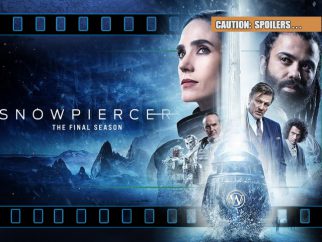
- Story9
- Acting9
- Direction9
- Production Design / VFX10

